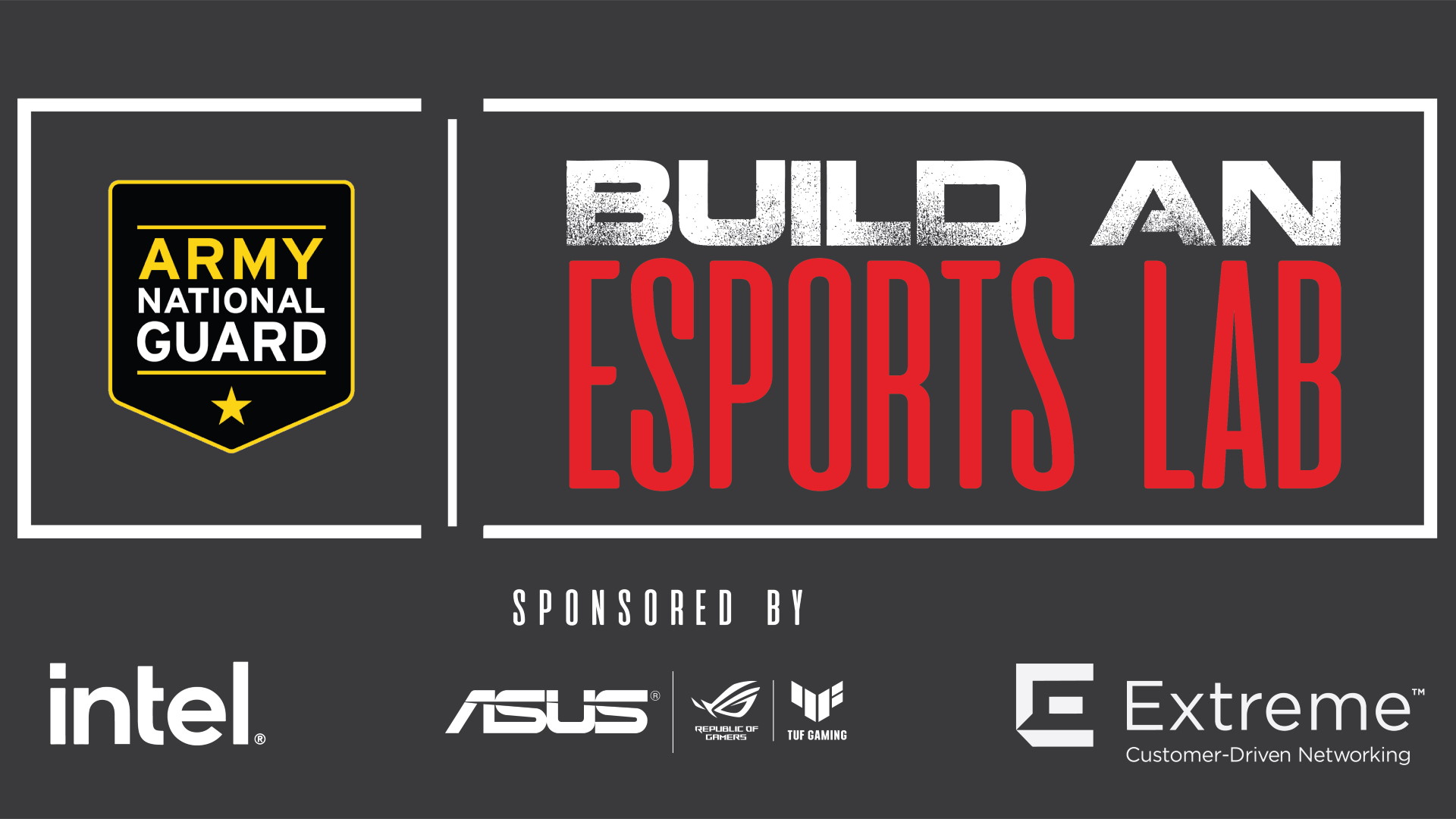US Army National Guard is sponsoring 'esports labs' for 25 high schools
The National Guard is partnering with Generation Esports, Intel, and Asus to install high-end hardware in 25 schools.

The US Army struggled this year with an attempted incursion into Twitch. Its esports team was grilled by gamers who wouldn't stop asking about war crimes, and then Columbia University's Knight First Amendment Institute said that deleting them, and banning those who ask, may actually constitute a violation of the First Amendment. The Army's return to Twitch in August was thus unmoderated, and went about as well as you'd expect.
Despite those headaches, US military branches are not giving up on their gaming-oriented youth outreach efforts. Generation Esports announced today that it has partnered with the Army National Guard, along with Asus and Intel, to install "fully equipped esports labs" in 25 high schools across the US. Each of the schools will get six Intel Core i7-based PCs built around Asus ROG components, and one will be selected at random to receive "a full internet infrastructure upgrade" from Extreme Networks.
"We know that setting up esports labs can be cost-prohibitive, so we wanted to step in and give schools an opportunity they might not otherwise have. STEM communities play a key role in the sustained growth of the economy, so it is important that we work to engage students in these areas in a way that builds life-long enthusiasm and excitement," Generation Esports president Jason Kirby said. "With this project we not only teach students life-long lessons on computer building and maintenance, but also give them the opportunity to get hands-on experience of Esport gaming, potentially setting them up for a future career."
Students at schools selected for the program will be given training on how to build and maintain the esports labs, and "partner representatives will also be on hand to provide expert advice for STEM related career choices and college programs." Kirby confirmed that the "partner representatives" going into schools can include members of the National Guard, as well as its esports teams, unless the school opts out.
"Schools can choose to not have the National Guard attend the activation at the school," Kirby explained via email. "This is an option for schools after they've been notified of being selected."
Otherwise, the National Guard would like to bring esports teams to selected schools for "friendly exhibition [matches] on the new equipment," as well as "speak to the benefits of pursuing STEM related careers in the National Guard."
Sports and the military have a long history together—the NFL's website has an entire page dedicated to Air Force flyovers, including a shot of F4s over Super Bowl VI in 1972—and the US Army, Navy, and Air Force all maintain their own esports teams (the Marine Corps does not, "due in part to the belief that the brand and issues associated with combat are too serious to be 'gamified' in a responsible manner"). The Navy and Air Force are also both sponsors of major esports tournaments, which would normally include on-site booths. And, lest we forget, America's Army has been a thing for nearly 20 years now.
Keep up to date with the most important stories and the best deals, as picked by the PC Gamer team.
The US military's involvement in sports and videogames hasn't been without criticism, but military recruitment efforts in schools feel particularly uncomfortable: The audience is young, impressionable, and literally captive. Though they have the option, it's uncertain whether any selected schools will actually opt out of the National Guard's offer to drop by.
Full details on the program, including hardware specs, an application link, and full rules, are available at highschoolesportsleague.com.

Andy has been gaming on PCs from the very beginning, starting as a youngster with text adventures and primitive action games on a cassette-based TRS80. From there he graduated to the glory days of Sierra Online adventures and Microprose sims, ran a local BBS, learned how to build PCs, and developed a longstanding love of RPGs, immersive sims, and shooters. He began writing videogame news in 2007 for The Escapist and somehow managed to avoid getting fired until 2014, when he joined the storied ranks of PC Gamer. He covers all aspects of the industry, from new game announcements and patch notes to legal disputes, Twitch beefs, esports, and Henry Cavill. Lots of Henry Cavill.


